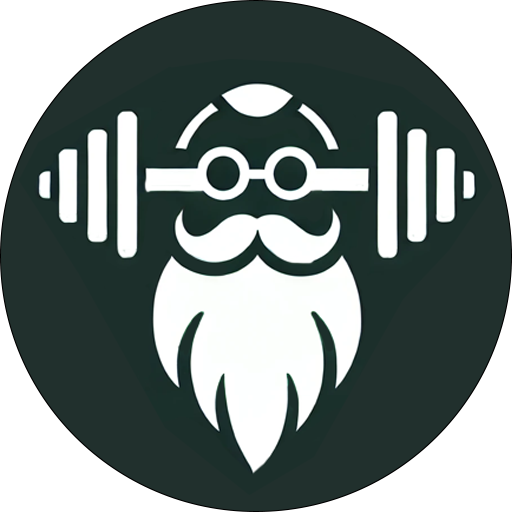Strength training is crucial for men over 40, especially at 46, as it helps maintain muscle mass, boosts metabolism, and improves overall health. This article will explore why strength training is essential at this age and how to create a balanced routine that includes nutrition and recovery strategies. By overcoming common challenges, men can build a strong foundation for a healthier middle age and beyond.
Key Takeaways
- Strength training is vital for maintaining muscle and health as you age.
- Setting realistic goals and including flexibility exercises can make workouts more effective.
- Proper nutrition and recovery are key to achieving fitness goals and preventing injuries.
Understanding The Importance Of Strength Training At 46
Strength training is super important for guys hitting 46. It’s not just about looking good; it’s about feeling good and staying healthy. As we age, our bodies naturally lose muscle mass, which can lead to a bunch of health issues. But guess what? Strength training can help reverse that trend!
Benefits Of Strength Training For Men Over 40
When you lift weights, you’re not just building muscle; you’re also boosting your metabolism. This means you burn more calories, even when you’re just chilling on the couch. Plus, regular strength training can lead to better bone health. In fact, better bone health is one of the biggest benefits of strength training, as it stimulates your bones to grow denser and stronger.
How Strength Training Affects Muscle Mass
As we age, muscle mass tends to decline, but strength training can slow this process down. Studies show that men over 40 can still gain muscle and strength by lifting weights. It’s all about consistency and finding the right routine that works for you.
The Role Of Hormones In Muscle Development
Hormones play a big part in how our bodies build muscle. After 40, testosterone levels can drop, making it harder to gain muscle. However, strength training can help boost testosterone levels, which is a win-win for muscle development. So, if you’re looking to build a strong foundation for middle age, hitting the weights is a smart move!
Creating A Sustainable Strength Training Routine
Setting Realistic Goals And Milestones
When you’re starting out, it’s super important to set realistic goals. You might want to lose weight or build muscle, but remember, it’s a marathon, not a sprint. If you push too hard too fast, you could end up feeling sore or even hurt. Instead, aim for consistency. Think about working out for about 45 minutes a few times a week. This way, you’ll build a solid foundation without burning out.
Incorporating Flexibility And Cardio
Don’t forget about flexibility and cardio! These are key parts of a balanced routine. While strength training is great, adding in some light cardio and stretching can help keep your body moving smoothly. It’s all about finding that sweet spot where you feel good and can keep going.
Daily Mini-Exercises For Busy Schedules
If you’re juggling a busy life, try fitting in mini-exercises throughout your day. Even short bursts of activity can make a difference. Think about doing a few push-ups or squats during a break. These little moments can add up and help you stay on track with your fitness goals. Plus, they’re easy to squeeze in!
Remember, building a routine is about finding what works for you. Whether it’s hitting the gym or doing exercises at home, the key is to stay consistent and enjoy the process. For more tips on fitness tailored for older men, check out this page that features various promo blocks and content formatting options tailored for older men.
Nutrition And Recovery For Optimal Performance
Essential Nutrients For Muscle Growth
When it comes to building muscle, getting the right nutrients is key. You need a mix of proteins, carbs, and fats to fuel your workouts and help your muscles recover. Protein is especially important because it helps repair and grow muscle fibers after you lift weights. Aim for about 1.2 to 2.0 grams of protein per kilogram of body weight daily. This means if you weigh 70 kg, you should be looking at around 84 to 140 grams of protein each day.
The Importance Of Hydration
Staying hydrated is another big deal. Water helps transport nutrients to your muscles and keeps your body functioning well. If you’re not drinking enough, you might feel tired and your performance could drop. A good rule of thumb is to drink at least 2 to 3 liters of water daily, especially if you’re sweating a lot during workouts.
Recovery Strategies To Prevent Injury
Recovery is just as important as the workout itself. After hitting the gym, your muscles need time to heal and grow. This is where rest days come in. Make sure to take at least one or two days off each week to let your body recover. You can also incorporate light activities like walking or stretching on these days. Getting enough sleep is crucial too; aim for 7 to 9 hours a night to help your body repair itself.
In summary, focusing on nutrition and recovery will set you up for success in your strength training journey. Remember, it’s not just about lifting weights; it’s about how you fuel and care for your body afterward. So, whether you’re just starting or getting back into it, keep these tips in mind to build a strong foundation for your fitness goals!
Overcoming Common Challenges In Strength Training
Addressing Joint Pain And Discomfort
When you start strength training, it’s common to feel some discomfort, especially in your joints. Listening to your body is key. If something hurts, don’t push through it. Instead, consider lighter weights or different exercises that don’t strain your joints. You might also want to consult a trainer to ensure your form is correct, which can help prevent injuries. Remember, it’s about building a strong foundation, not just lifting heavy weights.
Staying Motivated Through Setbacks
Let’s face it, everyone has off days. Whether it’s a busy schedule or just feeling low on energy, it’s easy to skip a workout. To keep your motivation up, set small, achievable goals. Celebrate those little wins! If you miss a workout, don’t beat yourself up. Just get back on track. A supportive community can also help; consider joining a group or finding a workout buddy. You’ll be surprised how much a little encouragement can go a long way.
Building A Supportive Community
Finding a group of like-minded individuals can make a huge difference in your fitness journey. Look for local classes or online forums where you can share experiences and tips. Engaging with others not only keeps you accountable but also makes the process more enjoyable. Plus, you can learn from each other’s successes and challenges. Remember, you’re not alone in this journey; many are on the same path, and together, you can achieve your goals!
For more tips and resources, check out the homepage of Fit Old Men where you can find a wealth of information tailored for your fitness journey!



